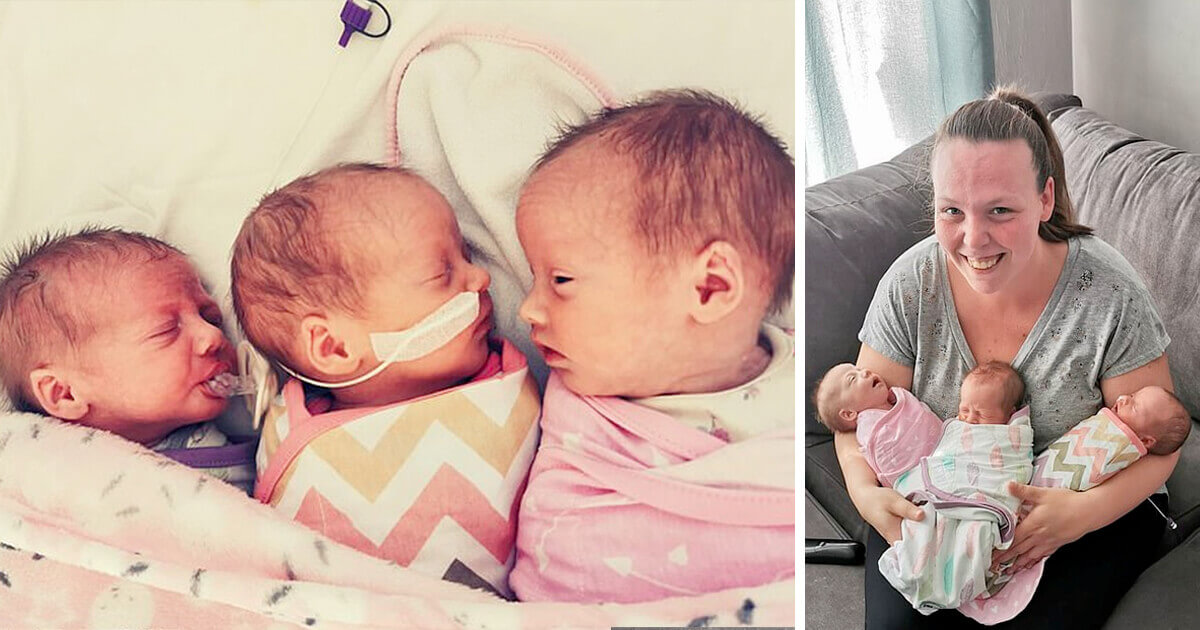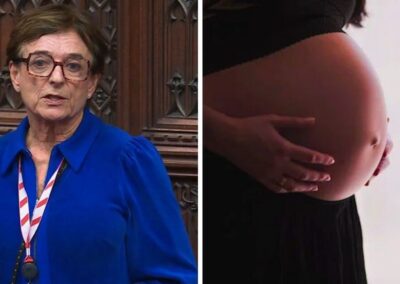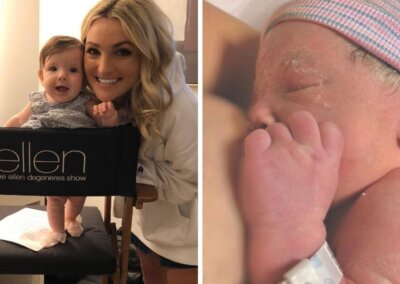A couple are celebrating the birth of triplet girls after resisting pressure from doctors to abort one of them.
Doctors advised Becky Sefton and Adam Balduckie to have a ‘selective termination’, which means choosing to end the life of at least one child in the womb, claiming their babies only had a 50% chance of survival if they didn’t.
But, the couple refused and welcomed Ellie, Everlyn and Ella into the world on 28 March.
Mother Becky told the Mail: “We thought if we lose one or all of them it means they weren’t meant to survive, but they came out kicking and screaming.”
“The birth was an incredible experience”, she added, revealing: “It was a miracle. The anaesthetist actually shouted ‘Jesus!’ when they came out screaming and crying.
“He said he couldn’t believe they were all crying because their lungs were not developed yet.”
Becky’s due date for the babies was 14 May but she was rushed to hospital on 27 March when she started having contractions.
The triplet girls were born just one day later, weighing just 3lbs (1.36kg) each.
Ellie, Everlyn and Ella had to remain in hospital for three weeks while doctors monitored their progress, but allowed their parents to take them home last week.
Now aged just one month old the girls are flourishing and developing well.
Becky, who also has seven-year-old daughter Poppy, and sons Alfie, five, and Freddie, two, said: “I’m so proud. It still hasn’t hit us yet that we have got three. A month down the line it hasn’t sunk in.
“My other three children didn’t see them for three weeks until we brought them home. They are all smitten with them and couldn’t believe it.
“They are really happy to have three more siblings.”
Father Adam said: “It has been quite strange and nerve-wracking worrying about whether Becky or the girls could catch something like coronavirus.
“The girls are doing brilliantly now. They are all laid back and don’t have distinct personalities yet.
“The kids are all pitching into help which is great. We’re just happy we’re all together.
“We’ve made a strict family routine so the triplets have fallen into that which makes life a lot easier for us.
“You have got to be organised with three newborns. It is exhausting but very rewarding.”
In 2015, former Olympian Jaime Halsey and her husband Steve Halsey were advised by doctors to abort two of the three babies after discovering Jamie was pregnant with triplets.
Thankfully, for Jaime and Steve abortion was never an option. They chose to keep all three baby girls, saying: “Other people have triplets and I wasn’t prepared to abort two healthy babies just to make life easier.”
The three of them turned five earlier this year and are enjoying lockdown life with their mother and father.
In England and Wales, 111 ‘selective termination’ procedures were performed in 2018 (the most recent figures available).
Last year, Norway’s parliament voted to restrict ‘selective termination’ abortions by introducing legislation requiring women pregnant with twins, triplets or more to obtain permission from a medical board if they want to abort one foetus or more.
Doctors in the country had warned that, aside from the major ethical concerns about aborting one twin, ‘selective termination’ procedures carry major health risks, both to the mother, and to the surviving twin.
Dr Birgitte Heiberg Kahrs, a specialist in fetal medicine at St Olav’s Hospital in Oslo, said: “We have not found any medical benefit from this.
“On the contrary, it exposes the second child in the womb to danger as the abortion risk increases.”












